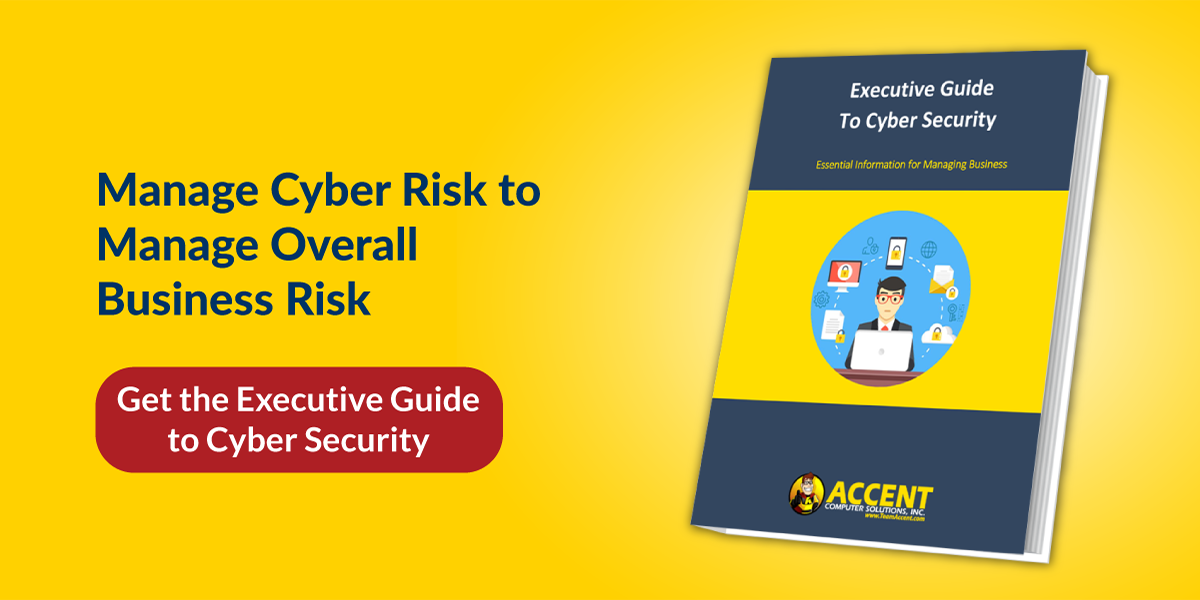If you have your laptop, you can work from just about anywhere if there’s an internet connection to your company servers. Out on a sales call and need to log in to grab your proposal? Need to get to your email from home? Updating your project timelines while you’re waiting at the airport for your next flight? No problem! No problem unless…
Unless you’re accessing your company network with a Virtual Private Network (VPN) connection, you’re creating an open door for brute-force cyber attacks that can compromise your information and leave a mess of problems in their wake. It might seem easier and cheaper to neglect to put VPN into your cyber security plan, but if the “bad guys” get through you could end up with legal issues with clients, downtime that halts business operations, and unexpected costs to stop and remediate the infiltration.
Whether you’re working from home or traveling for a seminar, remote access to your business’s local services in a manner that’s safe and reliable is a reasonable expectation you should have for your business. VPN makes this possible, by allowing you to connect to internal servers without compromising the safety of your network.
Breaking Down VPN
VPN is a method to remotely connect to servers by simulating a private network over a public network.
More simply put, it allows you to connect safely to your work network from a remote location with private or public WiFi with added layers of protection. Through VPN, your computer will appear as if it is at the office even if you are at home or traveling without compromising your network’s safety.
It's virtual because it's not a physical space, but rather a simulated platform through which information is passed.
It's private, because only you, with granted authentication, have access to your internal services.
It's a network because it allows you the virtual space for connection to take place.
How Does VPN Work?
VPN maintains security by creating a pathway via a small hole in your firewall, forcing connections to be authenticated and encrypted.
This authentication helps to ensure that only those with permission are allowed to connect. Encrypting the traffic being sent and received, helps to ensure that nobody else can eavesdrop on your communications.
Because VPN signals are encrypted, it’s more difficult for hackers to intrude on your internet activity when you’re on a public WiFi system. Working from home is a little different situation but even when you’re on your home network, your privacy is not assured unless you’re using VPN.
Do We Need VPN if We Use Port Forwarding?
If you’re using port forwarding to access your servers, you’re connecting directly through your firewall. This method, while simple and convenient, forgoes most of the security offered by your firewall which is a very important layer of security.
If you can get through your firewall, so can a hacker. That’s why VPN is a better approach that also allows for more functionality. Additionally, using VPN allows connectivity to all of your internal services not just a portion of them.
You might think that you’re saving money by using port forwarding, but you’ll be stuck with bigger costs if you have a data breach. VPN is the most effective and low-risk method to safely access your server remotely while ensuring protection from malware and viruses that could potentially compromise your system.
VPN and Cyber Security at Accent
Here at Accent, VPN is part of our layered approach to cyber security. We work with clients to determine the best options that will balance your employees’ need for remote access with the need to manage cyber risk. If you’re wondering if you’re missing a layer of security, like VPN, contact us for a security assessment or just give us a call at 800-481-4369.





